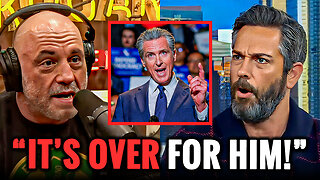Premium Only Content

Did the right actually win in Bolivia?
Did the Right Really Win in Bolivia?
Bolivia is heading into a presidential runoff for the first time since its return to democracy in 1982, after voters rejected for the first time in two decades a candidate from Evo Morales’ Movement for Socialism (MAS). This marks a historic shift, as the MAS has dominated Bolivian politics for twenty years. Many celebrated the outcome as a victory for the right, but the picture is more complex.
Among the two candidates advancing to the second round, neither can be clearly labeled as traditionally right-wing. Rodrigo Paz Pereira, son of former president Jaime Paz Zamora, is seen as a centrist reformer rather than a conservative. Although his roots lie in the Revolutionary Left Movement (MIR), a historic center-left party that gradually moved toward moderation, he is now aligned with the Christian Democratic Party (PDC), a centrist to center-right force grounded in Christian democracy. Paz presents himself as a moderate voice, advocating “capitalism for all,” reform, transparency, and inclusivity. His candidacy has attracted support from disillusioned MAS voters as well as parts of the right seeking a less polarizing figure.
On the other side is Jorge “Tuto” Quiroga, a former president who more openly embraces liberal economic policies. He leads the Libre alliance (Liberty and Democracy), made up of the Revolutionary Left Front (FRI)—a group that began on the left but has since shifted to a populist center-right orientation—and the Social Democratic Movement. Quiroga advocates for structural reforms, partial privatization of natural resources such as lithium, and stronger trade ties with the United States. His platform is more clearly identified with traditional right-wing liberalism and pro-market policies.
The ideological landscape, however, is blurred. Rodrigo Paz cannot be described as a classic leftist, but neither is he fully right-wing. His centrist positioning contrasts with Quiroga’s more overtly liberal program. Both, in different ways, symbolize the exhaustion of the MAS era and the desire for change.
Therefore, it would be misleading to say that the right has decisively won. What has truly happened is the collapse of the MAS monopoly, giving way to a contest between a centrist reformer with leftist origins and a traditional liberal conservative. The final outcome of the runoff on October 19 will depend on how voters weigh these nuances, reflecting not a simple right-left shift, but a more complex realignment in Bolivia’s political spectrum.
-
 1:08
1:08
Gateway Hispanic
4 hours agoBOLIVIA: Vpdte. Edmand Lara dice al Pdte. Paz que no permitirá que lo anulen de las reuniones
1 -
 8:47
8:47
Hollywood Exposed
8 hours agoJoe Rogan and Zachary Levi DESTROY Gavin Newsom’s Lies About California
6.32K2 -
 LIVE
LIVE
BlackDiamondGunsandGear
2 hours agoInside NEW Glock V Models / Whats Next? / You giving up Glock?
155 watching -
 2:05:31
2:05:31
Glenn Greenwald
7 hours ago"Former" Al-Qaeda Leader Welcomed to the White House; The "New TikTok" Clamps Down on Israel Critics: With Influencer Guy Christensen; Dave Portnoy Decries Cancel Culture, Unless His Group is Under Attack | SYSTEM UPDATE #545
123K52 -
 7:30:07
7:30:07
Spartan
7 hours agoNine Sols
7.2K -

SOLTEKGG
2 hours ago🔴 HUGE UPDATE - Veterans Day | Redbull x Dogtag Giveaway
8.84K1 -
 1:23:36
1:23:36
Flyover Conservatives
11 hours agoTough Love for Trump: What Must Change Now to Win Back America - Dennis Michael Lynch | FOC Show
18.7K2 -
 1:56:43
1:56:43
The White House
4 hours agoAbove, Below & Beyond: A Presidential Special
28.5K13 -
 1:12:44
1:12:44
Sarah Westall
3 hours agoYounger Brains Have Changed! Human Beings are Different Now w/ Neurologist Dr Jack McCallum
18.2K5 -
 2:24:49
2:24:49
megimu32
2 hours agoON THE SUBJECT: The Movies That Made Millennials — And the Ones That Missed 🎥
15.6K6